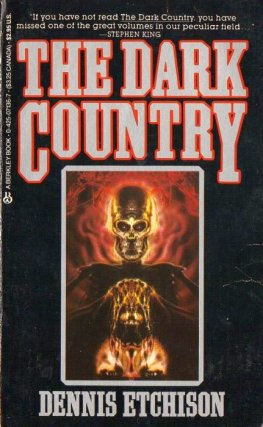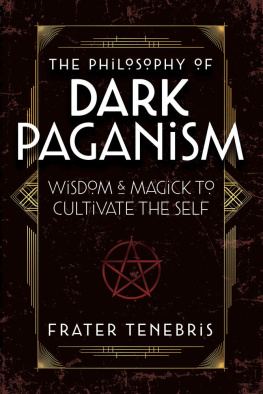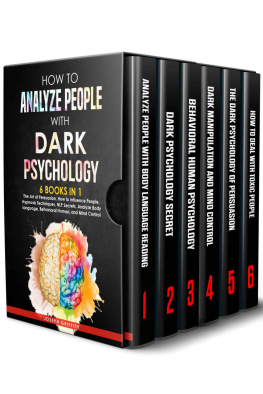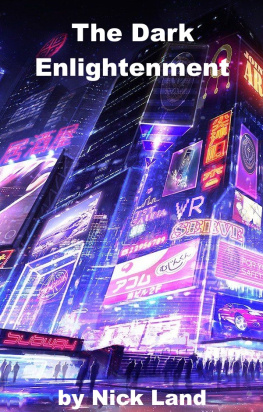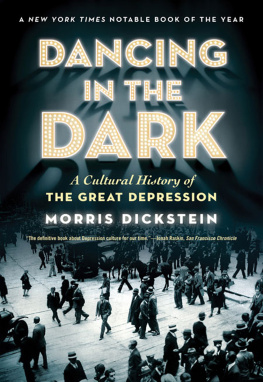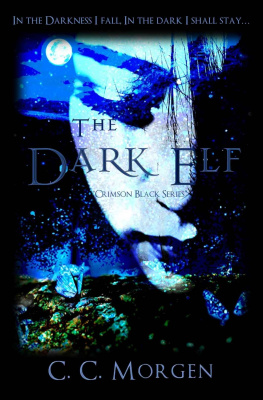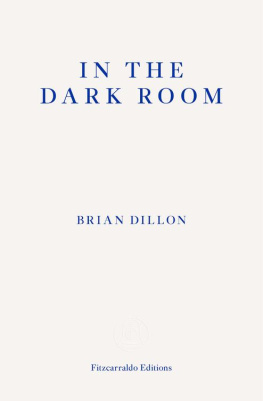Cover image: Joseph Phillip Natoli, Yellow Barque, oil on canvas, 15" 18", 2014
Published by State University of New York Press, Albany
2017 Joseph Natoli
All rights reserved
Printed in the United States of America
No part of this book may be used or reproduced in any manner whatsoever without written permission. No part of this book may be stored in a retrieval system or transmitted in any form or by any means including electronic, electrostatic, magnetic tape, mechanical, photocopying, recording, or otherwise without the prior permission in writing of the publisher.
For information, contact State University of New York Press, Albany, NY
www.sunypress.edu
Production, Jenn Bennett
Marketing, Anne M. Valentine
Library of Congress Cataloging-in-Publication Data
Names: Natoli, Joseph P., 1943 author.
Title: Dark affinities, dark imaginaries : a minds odyssey / Joseph Natoli.
Description: Albany : State University of New York Press, [2017] | Includes bibliographical references and index.
Identifiers: LCCN 2016021629 (print) | LCCN 2016036363 (ebook) | ISBN 9781438463513 (hardcover : alk. paper) | ISBN 9781438463520 (e-book)
Classification: LCC AC8.5 .N38 2017 (print) | LCC AC8.5 (ebook) | DDC 814/.6dc23
LC record available at https://lccn.loc.gov/2016021629
10 9 8 7 6 5 4 3 2 1
Maybe the space of exile is one of the few spaces left in neoliberal societies where one can cultivate a sense of meaningful connections, solidarity and engaged citizenship. Exile may be the space where a kind of double consciousness can be cultivated that points beyond the structures of domination and repression to what the poet Claudia Rankine calls a new understanding of community, politics and citizenship in which the social contract is revived as a kind of truce in which we allow ourselves to be flawed together.
Henry Giroux, Academic Madness and the
Politics of Exile, Truthout, November 18, 2014
Preface
You could say that the wily Odysseuss will to reach home could not be overcome by any arrangement of Chance or othersSirens and Cyclops included. I would call this a millennial reading, one emerging from a readership encouraged by their own personal will and freedom to choose their own destiny. The Odyssey I read is rather different. It is one in which forces and conditions outside Odysseuss power to control, circumstances that Chance and others create that he must reckon with, shape both the choosing and the chooser. We become more than what we personally design ourselves to be, and that more very often means that we become less than we designed.
One of the wonders of cyberspace is that it offers us an alternative world within which we can pursue a politics that meets our own preferences, reduce society and the social dimension of life to friends we choose, pursue answers on Google to all our questionsbut not very often to questions that exceed our own liking, interest, or erudition. Why wouldnt Odysseus now stand as an exemplar of that knowledge of The Secret, which tells us that if you will something strongly enough, the entire universe will conspire to fulfill your wishes?
My minds odyssey over the past half century did not remain true to a charted course I had proposed long ago. What I call my mind, at every stage reacted and reorganized itself according to what time, geography, and Chance put before it. There was no rudder pushing a personal will through all waters on an undeviating passage. My mind now is like a painters palette that over time reveals where the brush has been, or like carved rock formations in tide pools, which are the shape they are because of wind, sun, rain, and the ebbing and flowing of the oceans mighty force. When you scan the physiognomy of a mind, you see countless encounters with a culture within which that mind is embedded so that any retelling of the odyssey of that mind is, at the same time, a revelation of a culture. In my case, that is US culture, which we arrogantly call American, although the fact that I was raised in an Italian-American community in Brooklyn, a bilingual community in which neither English nor Italian were schooled, fashioned affiliations in many things, which were far from the American cultural norm.
My own father was born in the United States, but through odd circumstancesI call it the play of Chancewas educated in Sicily and returned to the United States as a teenager; and so the entire immigrant-family experience was mine, transmitted through my father. There is a certain subaltern psychology that develops, preconditioning the mind toward skepticism and even dissent. On a dark imaginary level, the Jewish Algerian Jacques Derrida was always deconstructing the French social order of things that marginalized him. The appearance of a Derrida at a certain moment is an exposition of a culture at a certain moment. The whole notion of a coherent, autonomous, and controlling subjectivity contends with the notion that we are variously positioned within the circumstances of our surround and no account of my mind can mean anything without reference to this.
The discipline to apply what brains I had came from the surround, as my father and my uncles encouraged me from early age to do well in school and grasp an opportunity denied to them. And so an intention-less intelligence was directed toward academic success. At Brooklyn College, I came under the influence of Jewish intellectuals who had escaped the Holocaust. History, politics, and economics were represented not as neutral social sciences but very much affected by socio-economic and political arrangements of power. So-called objective critique was always already interpreting within the interpretive frame of what was being critiqued. I was, early on, in every way, prepping for the skepticism of both Heidegger and Derrida, a skepticism that extended to the utopian view of Reaganite supply side economics as well as to both Marxs view of the inevitable course of history and the inevitability of a timeless communist utopia. And so I had an inevitable falling out with SDS (Students for a Democratic Society) in the late sixties and meandered my way toward a Max Stirner sort of anarchism, one I later saw as narcissistic and libertarian.
In the four books I wrote in the nineties, attempting to describe the American cultural imaginary as it moved in the nineties, I put myself forward only to access that imaginary, which a Frankfurt school type naysaying had already done its work in conditioning my description, making the entire project fallible, flawed, and unreliable as documented social history. And yet, the play of one persons mind over a decade with a cultural imaginary, sometimes unchanging and sometimes changing swiftly, was for me something like a live performancetransitory and ephemeral like a sand painting but revealing an interplay of a mind and world, a mind not unwilling to put forward its own inclinations.
Dark Affinities, Dark Imaginaries is an extension of that nineties effort, extended to the whole range of my mind/culture encounter. I employ I and not I-positioned-thusly for brevitys sake. I also realize that within a long-abiding American imaginaryalways defiantly free and independent, more so now in cyberspacethe odyssey of a mind too aware of outside influences and directives is decidedly analog and back-in-the-day. I reckon that the repetition of the word dark in my title owes something to my explorations into the American imaginary, along with much more that these selected writings might reveal.


